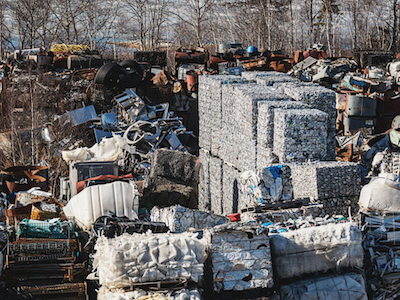Market

November 26, 2013
Tightening Scrap Market in Asia
Written by Damon Sun
The recent resurgence of the steel industry in Japan has resulted in a scrap shortage in the Far East, despite lackluster finished steel sales.
Japan’s resurgence is a partial result of Abenomics due to the weakening yen (currently at 101). Automobile sales, appliances and public infrastructure spending/reconstruction has resulted in very healthy steel demand in Japan. While Japan exports roughly 6 million metric tons per year in recent years, this year the export quantity of scrap will be down 20-25% and for next year, it will result in another 20% decrease in exports of scrap steel. In the last month, Japan has imported barge loads of scrap from Hong Kong and Philippines.
This results in less scrap metal exports to Korea. Russia also will be exporting less scrap in the winter months. With these two sources down, the only resulting source of scrap will be the USA. Despite poor finish product sales, Hyundai jumped with four bulk cargoes off the West Coast at $409/MT CFR. However, other Korean mills have decided to reduce production rates and last week the domestic Korean scrap prices dropped $5/MT.
Containerized prices have remained rather stable at the $360-$370/MT level to both Korea and Taiwan. At these price levels, in relation to finish product sales, the mills are barely able to afford imported scrap.
Efforts to increase finished product prices have been met with large resistance in a poor demand environment. Compounding these situations the US$ currency rates have been strengthening against Taiwan and Korean currencies resulting in less buying power.
At moment, SE Asian markets are rather quiet as well. Most mills in Asia are buying less imported scrap on a wait and see situation. They are waiting for the pickup on steel sales.
In summary:
Weak Yen results in Japan export competitiveness (example Toyota auto sales vs. Hyundai Auto Sales). Increase scrap demand in Japan – Japan importing scrap. Weak Asian currencies in Korea and Taiwan resulting in less buying power for import scrap.
Less scrap available from Japan and Russia – partially compensated from increased scrap supply from Brazil and Mexico (antidumping rebar effect). Poor finished demand in Asia. Iron Ore stable, partially weakened.
Common consensus is a strengthening of scrap prices to Asia. However, this will result in lower demand at these price levels.
There are a tremendous amount of factors working at this moment in time.
The post Tightening Scrap Market in Asia appeared first on Steel Market Update.





